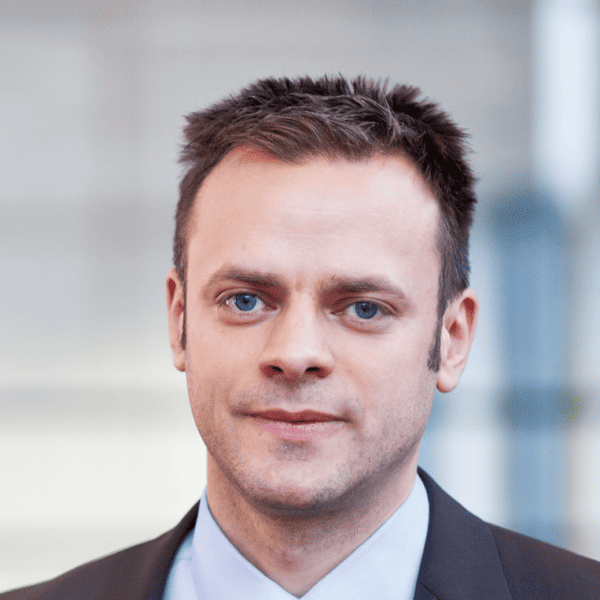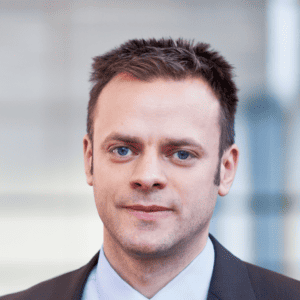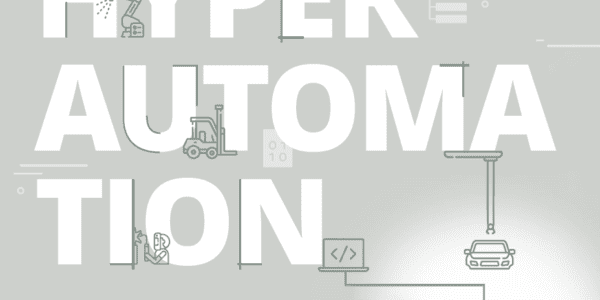
SEW-EURODRIVE is a true pioneer in Industry 4.0. The drive specialist has not only been digitizing its own 17 plants for many years, but also helps its customers worldwide with factory automation. Jens Kohlhaas, lean in-house consultant at SEW, and Gero Bockelmann, smart factory expert at the family-owned company in Bruchsal, Germany, explain in an interview why digitalization is more than just an efficiency tool.
With sales of 3.6 billion euros and around 20,000 employees, SEW-EURODRIVE is one of the international market leaders in the field of drive technology and drive automation. Headquartered in Bruchsal, Germany, the owner-managed, family-owned company is rooted in the region while maintaining a presence in 54 countries around the world. SEW-EURODRIVE’s claim to technological leadership is underscored by the fact that more than 800 employees work in research and development.
An expert contribution to the 2023 “Future Industry” study
Interview with Jens Kohlhaas and Gero Bockelmann, SEW-Eurodrive GmbH
According to the latest Staufen study, almost every second company has initiated new digitalization projects despite the slowing economy. Your company too?
Jens Kohlhaas: As in the entire industry, many things have happened at SEW-EURODRIVE in the past three years. Value chains were disrupted. Nevertheless, we have invested a great deal of effort and energy in advancing the digitalization projects. The spectrum ranges from the company-wide project “Smart for SEW”, the core of which is the conversion to SAP S/4 Hana, to numerous product developments and optimizations in value-adding processes.
The study also shows that most digitalization projects are about improving efficiency. Only one in three companies is thinking about new business models. Is this enough to not only survive the crisis, but to remain viable beyond it?
Gero Bockelmann: Digitalization projects are often a feeling-out process. You know you have to do something, but you do not know how to get the best out of it. That is why many are embarking on efficiency improvement projects. As a result, employees are beginning to “think more and more digitally.” This change in mindset, in turn, has implications for the development of the entire organization. However, it is important to realize that this is only the first step; after all, increasing efficiency in your plant is nice, but the real benefits of digitalization come from alternative business models.
Jens Kohlhaas: In addition to the technology, the pioneers of Industry 4.0 always have a business model in mind. In our case, our own plants are a fantastic “playground” for testing new technologies and approaches. Always thinking about how to use them to create new products later on. So we use digitalization to improve our own efficiency, but we always see the potential to take our solutions to market. I think it is similar for other companies that are intensively involved in digitalization.
It almost seems as if there is a dichotomy in the economy when it comes to digitalization. Half is very committed, while the other half is stuck with testing and individual projects. Is that true?
Jens Kohlhaas: I would not draw such a hard line. A company like SEW-EURODRIVE, whose core business is strongly influenced by digitalization, is naturally concerned with this topic. An example: In the past, drives were needed for traditional conveyor belts, but the trend toward automation and flexibility in intralogistics now requires completely different products with greater functional scopes in terms of control and networking. Companies whose core business is not so directly affected are likely to be even more reluctant.
No other digitalization technology has generated as much excitement in recent months as artificial intelligence. How does SEW-EURODRIVE deal with this?
Gero Bockelmann: We have AI projects in purchasing and sales, where various tools are already being tested as part of the digitalization strategy. AI is also already a topic in the development areas – this is where the first ideas for new business models and products are emerging. The intensive study of the subject is the first important step in order to be able to operate on the market in the future.
Many companies now publish annual figures on when they plan to become carbon neutral. Do you have a target date for when you would like to go fully digital?
Gero Bockelmann: To quote our Digital Transformation Officer: “Digitalization is not a project, but a process that will continue to accompany the company in the future.” There are already many technologies, but they will continue to evolve.

Gero Bockelmann
Manager System Planning – MAXOLUTION®
SEW-EURODRIVE GmbH & Co KG


Jens Kohlhaas
Business Process Consultant
WIEPROconsulting – Processmanagement SEW-EURODRIVE GmbH & Co KG

Jens Kohlhaas
Business Process ConsultantWIEPROconsulting – Processmanagement SEW-EURODRIVE GmbH & Co KG
Jens Kohlhaas joined WIEPRO Consulting at SEW Eurodrive GmbH & Co. KG in 2011. He graduated in Business Administration and Modern Chinese Studies at the University of Cologne. In his professional career he also worked for a logistic service provider in the automotive industry with a focus on inbound logistics. At WIEPRO Consulting Jens Kohlhaas focusses on project work in SEW‘s assembly and production plants in Asia – especially China. Currently he is involved in material flow and process optimization projects in China, Korea, Singapore and Malaysia. In addition he conducts trainings for Lean manufacturing and Lean assembly methods in Germany and abroad.
Read more




